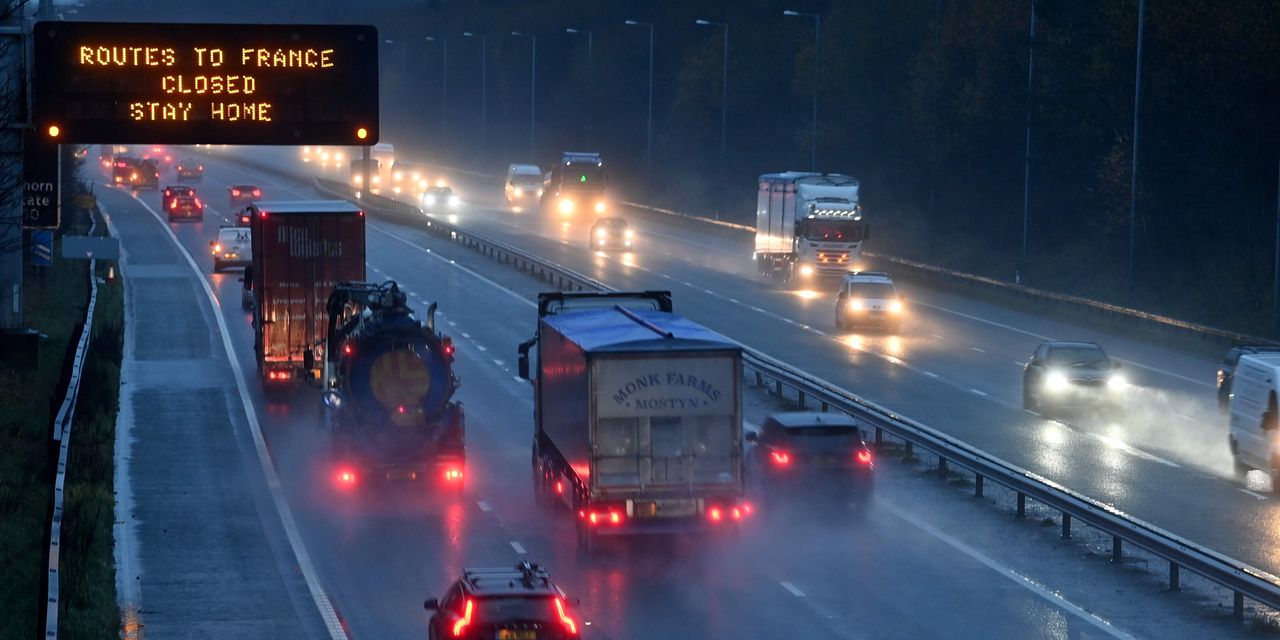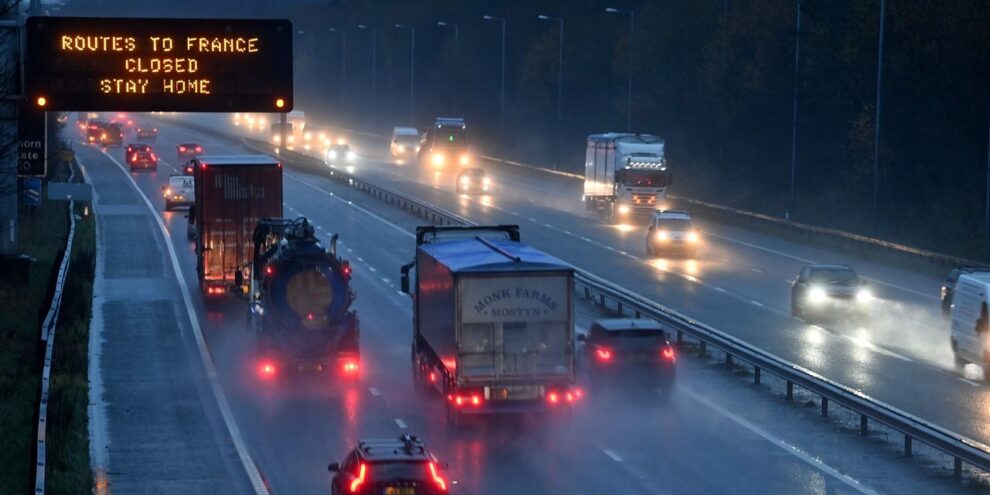
The U.K.’s prime minister will hold an emergency meeting on Monday, after France and a growing list of countries, including Turkey, halted flights and shut their borders to try to curb the spread of a new strain of coronavirus.
The government said late on Sunday that Boris Johnson will chair its crisis-management committee, known as Cobra, to discuss international travel, in particular the flow of freight in and out of the country.
Read: European countries and Canada ban travel from U.K. amid highly infectious COVID-19 strain
Turkey joined the expanding list of nations temporarily suspending all travel from the U.K. on Monday, which now includes Germany, Italy, the Netherlands and Austria among others.
France’s 48-hour travel ban prompted warnings that the closure of English Channel ports in Kent could cause food shortages.
Ian Wright, chief executive of the Food and Drink Federation, said suspension of accompanied freight traffic from the U.K. to France, “has the potential to cause serious disruption” to U.K. Christmas fresh-food supplies — and exports of U.K. food and drink.
“Continental truckers will not want to travel here if they have a real fear of getting marooned. The Government must very urgently persuade the French government to exempt accompanied freight from its ban,” Wright said.
In a tweet, transport minister Grant Shapps asked people, in particular hauliers, not to travel to Kent ports or other routes to France, warning that “we expect significant disruption in the area.”
European Union officials are due to meet on Monday to discuss a coordinated response to the new strain of coronavirus.
“Restrictions on traffic between the U.K. and other countries, including in the case of France on freight, has raised the pressure on a supply chain already creaking under the weight of an online Christmas and Brexit uncertainty,” said Russ Mould, AJ Bell investment director.
The U.K. reported a record daily rise in confirmed coronavirus cases on Sunday, with another 35,928 infections.
The new coronavirus strain — called “VUI-2020-12-01” — is thought to be 70% more transmissible than existing strains and appears to be the cause of the rapid spread of new infections, Johnson told a press conference on Dec. 19.
The government said there is currently no evidence that the variant is more likely to cause severe disease or mortality, “but we are continuing investigations to understand this better,” it said in a statement.
Read: Should you be worried about new COVID-19 strain? Here’s what to know
French health minister Olivier Véran told Europe 1 radio on Monday that the new strain of coronavirus could already be circulating in France, but stressed that it had not been yet identified in the country.
Italy’s health ministry said on Sunday that it has detected a patient infected with the new strain of coronavirus. The patient and his partner returned to Italy from the U.K. in the last few days on a flight that landed at Rome’s Fiumicino airport, and were now in isolation, the ministry said.
Health secretary Matt Hancock told Sky News that cases have “rocketed” during the last few days, and warned that keeping the new variant under control until a vaccine has been rolled out would be “very difficult”.
The government said there is currently no evidence to suggest that the Pfizer 0Q1N, vaccine wouldn’t protect people against the new strain. “Further laboratory work is currently being undertaken as a priority to understand this,” it added.
The European Medicines Agency, or EMA, is due to meet to assess the COVID-19 vaccine being developed by U.S. drug company Pfizer PFE, -0.92% and its German partner BioNTech BNTX, -2.06%, paving the way for Europe to start vaccinations within a week.
The EMA said last week that it will meet on Dec. 21, instead of Dec. 29, to decide whether to approve the Pfizer–BioNTech vaccine, after the agency came under pressure to shorten its approval process amid a surge in coronavirus cases and tougher lockdown measures in the 27-nation bloc.
The Pfizer–BioNTech vaccine has already been authorized for use in the U.K., the U.S., and Canada, and vaccine distribution has started in those countries.




